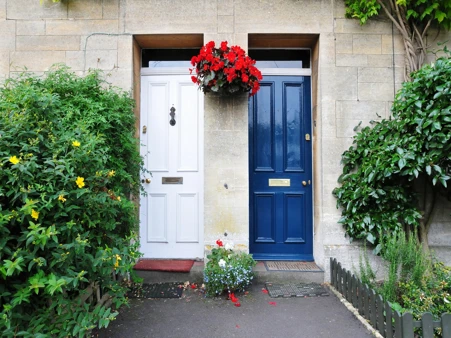When borrowing money for your buy-to-let mortgage, there are two ways you can repay the loan.
Interest-only
With interest-only mortgages, only the interest on the loan is paid each month; not the capital borrowed. At the end of the mortgage term, for example, 25 years, a landlord would owe the lender the amount borrowed, and if they wanted to retain the property they would need to have a plan on how to repay the original loan.
Many landlords choose to borrow money to invest in property with an interest-only mortgage, planning to simply sell at the end of the term, at which point they will pay any tax due on capital gains and retain any equity. The interest-only cost of the mortgage is tax-deductible.
Repayment
Repayment mortgages will cost more each month.
The repayment amount is made up of interest on the loan and paying back a portion of the amount borrowed.
Over time, as more and more of the original loan is paid off, the repayment amount reduces as the borrower’s equity increases. The mortgage repayments are structured so that at the end of the term, both the interest and the full amount borrowed are paid off in full. The property is then owned outright.
To decide which mortgage option is right for you and whether a mortgage interest or repayment loan is the right choice, you will need to be clear on your investment objectives and take into consideration the tax implications of investing in property to let.
Mortgage interest and tax
When you own a property and rent it out, you're essentially running a business. As such, there are certain costs that are tax-deductible and one of these are the mortgage interest payments.
Because of this, most landlords who want to maximise both their rental income and the return on their property investment, take into account the tax benefits and tend to invest with some level of mortgage over the long term.
What are your property investment objectives?
With an interest-only mortgage, a landlord would keep more of the monthly income but never pay off the loan. With a repayment mortgage, the landlord owns the property outright at the end of the mortgage term. However, for those who are investing to generate an income, the interest-only option may be best.
If it's capital growth and a lump sum that interests you most, or you want to pass on a fully-owned asset to your beneficiaries, a repayment mortgage may prove to be the right choice for you.
Find out more about buy-to-let mortgage in our Buy-to-Let guide, or feel free to contact one of our specialist advisers.
Important information
There is no guarantee that it will be possible to arrange continuous letting of the property, nor that rental income will be sufficient to meet the cost of the mortgage.
Your property may be repossessed if you do not keep up repayments on your mortgage.
There may be a fee for mortgage advice. The actual amount you pay will depend upon your circumstances. The fee is up to 1% but a typical fee is 0.3% of the amount borrowed.

